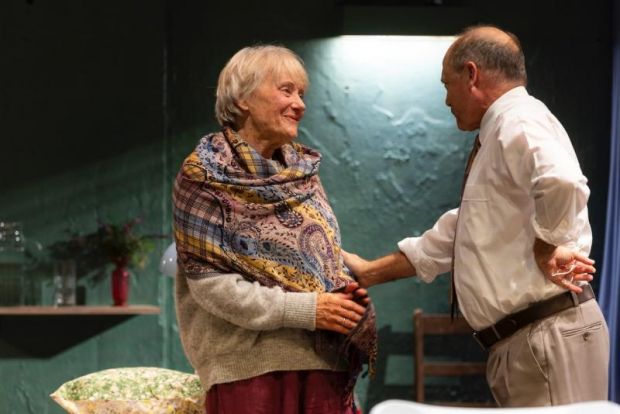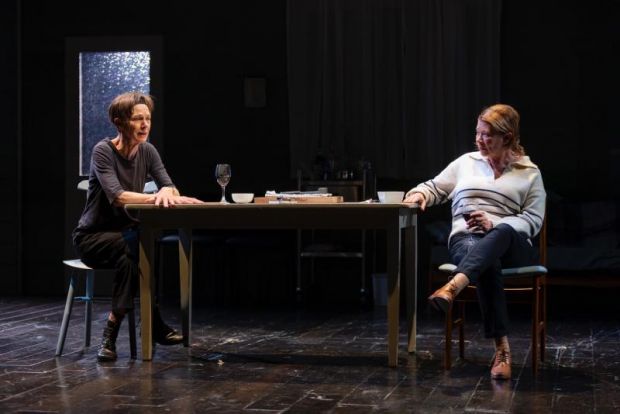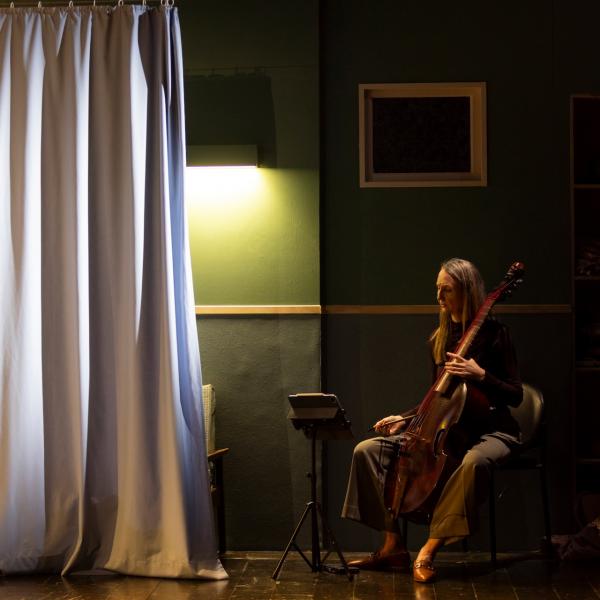The Spare Room
I haven’t read Helen Garner’s short, applauded novel The Spare Room but maybe Pedro Almodóvar did. His last film, The Room Next-door, is about the same uneasy subject: a woman with terminal cancer convincing, even manipulating, a friend to help her die.
Almodóvar in truth based his film on another novel, but this wrenching scenario is surely ever more familiar to many of us. Belvoir’s new theatrical adaptation of Garner’s novel spikes the expected gloom with lots of laughs, and avoids most of the traps when leaping from page to stage.
Both of this is thanks to the elasticity and charisma of Judy Davis. As the friend Helen, her’s a super physical, entrancing performance, as Davis shares her exasperation directly with the audience.
Helen’s frustration is that her house guest Nicola, in Melbourne for some obvious shonky “alternative cancer treatment”, won’t admit her impending mortality; but invests all faith in organic coffer enemas, ozone saunas and dangerous overdoses of Vitamin C.

Helen is left with reality, the pain and the anger. Elizabeth Alexander captures Nicola’s irritating fake optimism, her presumptions born of privilege and yet underlying regret at life’s lost opportunities.
Mel Page’s designs an effective set for Helen’s home, the bed (in The Spare Room) curtained at one end, with other domestic areas instantly swapped into medical clinics. Alan Dukes brings truth to an array of medical professionals, including the cancer fraudster; Emma Diaz shines as Nicola’s young niece trying to help, and Hannah Waterman fills out a fine ensemble.

Eamon Flack’s production is speedy and avoids any depressing plod to inevitability, with his own adaptation lifting the novel into mostly sharp dialogue. But its sparkle would seem impossible without Davis’ agility and pathos as (like a good writer) she sweeps us into the story.
Striding realities, she sports some brilliant touches of meta-theatre, like when she joins onstage cellist Anthea Cottee to tap out another musical mood change - the sort of audience wink-wink moments long a signature of Belvoir.

Helen’s exhausted countdown of her three week responsibility is nicely etched through Paul Jackson’s lighting, while the cello’s long notes from composer Steve Francis balance the action with a foreboding of death.
Through a running time of 110 minutes, without an interval, the tension almost holds as we wait to see if Nicola will finally hear it.
Martin Portus
Photographer: Brett Boardman
Subscribe to our E-Newsletter, buy our latest print edition or find a Performing Arts book at Book Nook.
